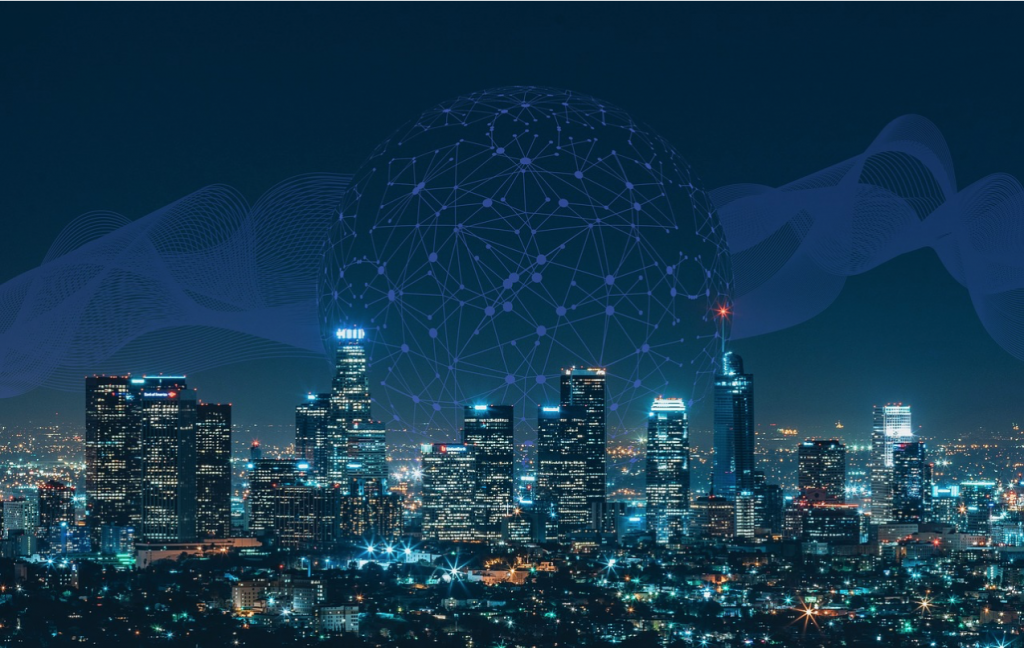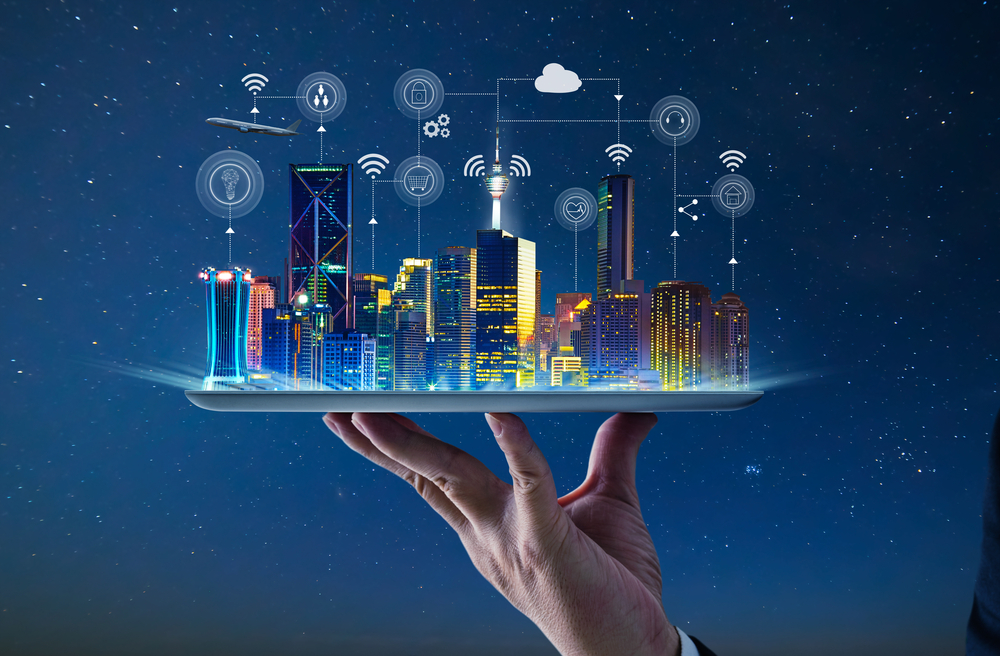As technology advances, our expectations, as consumers, change along with it.
We adapt to things once thought impossible that eventually become commonplace, and it’s hard to think of a time when they didn’t exist.

source: pixabay.com
What was once a luxury becomes a necessity we can’t live without.
We get the most from our technology when we start thinking of new ways of integrating different things: An excellent case in point is how well we have been served by putting a computer in our cars, an innovation that has proven integral to the development of self-driving cars.
How different
technologies can improve our quality of life can be seen in smart cities, the
cities of the future.
What Are Smart Cities?
Rather than trying to explain what a smart city is, let’s try to picture what living in one would be like:
When you wake up early in the morning, preparing for a long day of work, not only will your apartment know that you’re up, thanks to your biometrics and the use of IoT technology, but it will also know your schedule for the rest of the day and help you get ready.
Your apartment will start by opening the lights and cooking your breakfast just the way you like it, considering that you’ve been on a diet for the past three weeks.
Once you’re out of your apartment, you’ll find an electrical, self-driving car waiting for you out in front. The car will know where you need to be; you won’t have to input any data.
On your way, the car will scan for any emergencies or accidents on the road ahead, and it will take alternate routes to avoid any unnecessary delays.
As you arrive at your office, you won’t have to worry about paying for the car ride as it has already been paid for using blockchain technology.
The instant you enter your office, your digital assistant, an AI engine that helps you in your day-to-day activities, will run you through the main talking points you need to cover in today’s meetings and any other relevant information you might need.
This short example only explores the tip of the iceberg.
Smart technology can
enhance any area of city management such as energy distribution, utilities,
education, healthcare, and public safety, all with the end goal of improving the citizens’ quality of life and
saving them valuable resources.
What Do Smart Citizens Want?
A big part of successful design is starting with the most basic question: What does the end-user want?
With smart cities, we need to figure out what smart citizens expect and move from there.
Smart citizens want the services provided to them to be transparent, accessible, and responsive.
According to a survey by Accenture, they expect their digital experience to be personalized to them, they want to access these services through their smartphones, and they want these services to be integrated with their social media.
We can meet all these demands with the use of mobile apps that offer timely access to both services and information.
Why Do People Want Mobile Applications?
For many Americans, the only viable way to access the internet is through their smartphones; according to a report by Pew Research, the number is around 20 percent.
When people spend time on their smartphone, they will probably spend around 89 percent of their time using apps and only 11 percent browsing the internet.
This is not to mention that, per session, people stay engaged with an app three to four times more than when looking at a website.
Realizing the potential benefits to be gained, several businesses have been exploring how to develop an app that will suit their needs.
Similarly, smart
cities need to think of different ways
to leverage the power of mobile apps to reach their citizens and offer them
the best quality of life possible.
What Are Some Services That Should Be Appified?
User, or in this instance, citizen experience is what will drive app software development for creating smart cities. Some popular uses of smart technology that will help bring us closer towards this goal include:
1. Service Requests
Picture this:
You are walking down the street, and you see a pothole or a faulty streetlight.
Being the good citizen that you are, you help rectify matters and to use your phone’s app to take a picture of the issue at hand, write a brief description, and bring the matter to the proper authority’s attention.
It’s as simple as that.
The good news is that some cities already have an app like this, such as Philly311.
Even though the app’s rate of adoption over the past few years has been impressive, there is still plenty of room for growth, both in terms of people adopting the app and in terms of other cities creating a similar app for their citizens.
2. Traffic Management
Of the many services that should be appified, traffic management is definitely on the top of the list.
First off, cities need to consider embracing parking apps to help them control congestion, and several cities have already begun rolling out their apps, including New York’s PARK Smart NYC, Los Angeles’s LA Express Park, and Miami’s PayByPhone.

source: pixabay.com
A parking app will make it easier for a city to collect parking fineswhile also offering citizens different ways to pay.
It can also make it easier for citizens to find parking spots and present them with variable pricing, depending on the time of day.
Another application that can prove useful for citizens is one that monitors the flow of traffic and attempts to optimize driving conditions.
This can be something as simple as telling you which roads to take to avoid congested roads or something as complicated as a commuter planner that takes into account public transit, road conditions, possible carpooling options, and other variables.
3. Smart Energy
Power grids will be smart, detecting faults in the network and gathering data on how the entire city is consuming power.
Even your energy meter will be smart, measuring your usage of your utilities and offering your recommendations to help you reduce your consumption.
With the right app, you will control your devices from anywhere on the planet.
You will reduce the consumption of your most energy demanding devices, especially during peak consumption hours.
Also, you will have a constant open line of communication with your energy providers, allowing you to know beforehand if there will be any power outages or other issues worth addressing.
4. Health Management
Wearable technology, think Fitbit or Apple Watch, has already had a major impact on the healthcare industry.
Yet, it can do so much more.
Hospitals can get overcrowded, a reason for which is that healthcare providers want to monitor some of their patients consistently.
With wearables, several of these patients will stay home while still being monitored by their physician, freeing up a hospital bed for someone who might need it more.
And, should one of these patients fall, get injured, or just worsen, the physician can send help on the spot and contact a family member.
We will control this with the use of the right app.
5. Smart Education
For the past couple of centuries, our education system has been relying on a one-size-fits-all model.
However, we find that this model is not adequate and that we need to tailor the educational experience more closely to what each student needs.
This is where apps can help us.
Not only can they
help us gather data on each student,
helping us monitor their progress, but they can also be used to provide different learning materials in
a way that is suited to the unique learning style of each student.
In Sum
Technology advances exponentially, bringing with it new opportunities to improve the quality of our lives, especially when we envision different ways of integrating technology to suit our needs.
In that vein, smart cities are part of an ongoing trend that shows how much technology can impact our lives. Although the smart cities of today are nowhere near realizing their full potential, it won’t be long before we find ourselves living in a city that was only possible on the pages of a science fiction book.

 by Carl Bunton 6 years ago
by Carl Bunton 6 years ago 